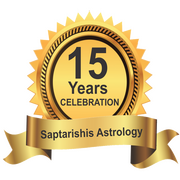Related Articles
SA Volunteer: Ricardo Ribeiro
Introduction
This Article is a research to find the correct time of birth of Emperor Akbar. Previously a lot of efforts have been made to find his horoscope but none of them were detailed and most of them are not accurate. I’ve always been interested in Akbar’s time and his way of ruling which was really important in the development of Persian culture in India at the time when Iranian scholars had hard times in Iran and had to find a new place to move.
The court of Akbar was a kind of academy in which scholars, religious and secular men, artists, and scientists were gathering under the support of the Kings. Their support even brought many foreigners to the court. Almost all Mughal emperors were interested in Astrology and all of them had many astrologers around them.
It’s noticeable that the court language of that time was Farsi and it remained the second biggest language of India until replaced by English by the governance of Britain over India in the 19th century.
A very important part of this article is about how both tropical and sidereal astrologers were working together in the court to serve the king. In part one we talk about the correct horoscope of Akbar and in the second part, we see how astrologers of the court interpreted the chart.
Date Of His Birth According To Other Astrologers
In his book Notable horoscopes, Late B.V. Raman gave 23rd or 24th November 1542. Sri K.N. Rao presented it as 15th October 1542, while Pt. Sanjay Rath gave it as 4th December 1542.
K.N. Rao writes: “Not understanding this, English and Indian historians debated whether Akbar was born in October or November of 1542. If they had known astrology or had taken the help of an astronomer-astrologer they could have seen that the horoscope given in Akbar Nama by Jyotik Rai, the Hindu court astrologer of Akbar and later Jehangir, clearly gives us 15th October 1542 (Hindu dates must be converted) which date could be cross-checked through other horoscopes using Sayana longitudes by some Arab astrologers again in Akbar Nama.”
K.N. Rao was right about the date but 15th October is in the Julian calendar and not the Gregorian. As he said, Akbarnamah explains the exact moment of birth so we review that section of Akbarnamah.
Akbarnamah
The Akbarnamah which translates to Book of Akbar, is the official chronicle of the reign of Akbar, commissioned by Akbar himself by his court historian and biographer, Abulfazl who was one of the nine jewels in Akbar’s court. It was written in Persian, the literary language of the Mughals, and includes vivid and detailed descriptions of his life and time. It is stated that the book took seven years to be completed. Several copies of that manuscript exist in many libraries around the world and I could gather more than 25 manuscripts from the libraries of Iran.
Sadly, many copies dropped or left the horoscopes blank! Even the luxury manuscripts of the British Museum don’t have horoscopes. Some other Persian copies also present unclear or even wrong figures. Hopefully, the text explains the necessary information to recast the charts, and putting it all together can give us a correct chart. Also, in English translations I’ve found, many items from the charts are dropped and translators simply presented the planetary positions.
Astrologers of the Court
In Akbarnamah, Abulfazl presents four horoscopes of Akbar which cast by four eminent astrologers:
1- Mawlana Chand, is the astrologer and astronomer who was present at the time of birth. He is well known for his accuracy in calculation. He found the tropical Ascendant of Akbar as 6º13 Virgo. He recorded the time of birth and cast the ascendant using an astrolabe.
2- Jutgrai or Jyotikrai (Jyotish Raj) is another astrologer who according to Abulfazl was the best among Indian astrologers. He is probably no one but the well-known Neelakantha who was the author of Tajik Neelakanthi and Prasna Tantra. He cast the chart using the sidereal zodiac and found it as Leo Ascendant.
3- Amir Fathullah Shirazi was a Persian-Indian Polymath, jurist, finance minister, mechanical engineer, inventor, mathematician, astronomer, philosopher, and artist! He was titled “The arm of the empire”. Initially, he served as a teacher in Shiraz. He later became the Prime Minister of the Mughal Empire. He wrote many medical books. Also, he had an important role in transmitting Iranian knowledge and culture to India. Among the four horoscopes of Akbar, he has the most complicated calculations. He calculated the Tropical Ascendant of Akbar as 28º37 Leo.
4- Mawlana Ilyas Ardebili was another astrologer who cast Akbar’s chart. When Homayoun comes back from Iran, Mawlana Ilyas accompanies and serves him. He was one of the best astronomers and astrologers of his time. The astronomical tables he uses are different from what other astrologers used.
Before Akbar’s birthday
As already said, Abulfazl was commissioned by Akbar to write his life story. He starts from early events before his birth. We should note that the literature of this book is written in favor of the king and may exaggerate the stories and avoid writing anything negative about him.
In brief, Abulfazl writes several pages about the dreams of relatives and the signs which were promising the pregnancy of the queen and describes him as a promised child. He keeps telling the stories until the morning of the birthday. The first part of the memories is not in the interest of this article but the second part absolutely is!
From the morning when the queen knew that she would deliver the baby soon, all astrologers and ministers were discussing the time of birth. They were present in the court and were waiting for the baby to be born.
“Few hours before the birth time, Mawlana Chand, the astrologer, and astronomer of the court was anxious because he found the time to be inauspicious and he was full of pity that in the next few hours, a time comes which never repeats in thousands of years”, Abolfazl writes. Then an ugly midwife comes to help the queen and the appearance of that midwife shocks the queen and causes the delay of birth. According to the text, this event leads to the passing of that inauspicious time and the delivery gets postponed to a far better time.
Regardless of his exaggeration, it shows that a discussion was going on between astrologers waiting for the royal baby.
The Day Of Birth Explained
Akbarnamah gives detailed information about the date, time, and place of birth. Interestingly the date of birth is mentioned in five different calendars which are the following:
1- Saturday, 8th Aban, 464 Jalali Calendar
2- Sunday, 5th Rajab, 949 Lunar Hijri
3- 19th Esfandarmaz 911 Old Persian Calendar
4- 6th Katak 1599 Hindu Calendar
5- 16th Tesrin Avvel 1854 Rumi Calendar
Here we get that he was born on the 6th day of the Hindu Calendar which is the 5th Day of the Arabic lunar calendar because Arabs wait to find the moon out of sun’s beam. Also, the month of Aban sun is in tropical Scorpio. Jalali Calendar starts on March 21st and Aban is the 8th month, therefore, Sun is in tropical Scorpio. It is also in the month of Kartik which starts in late October.
You might also find a controversy in the first two dates, of which the former is Saturday and the latter is Sunday! In most calendars, the day was commencing from sunrise, but in Arabic calendars, the night comes first! It means after sunset is Sunday night and the next sunrise is the start of Sunday! In contemporary Iran the calendar day has not been starting from sunrise but it starts at midnight like in the west.
Converting any of the given dates, the correct date of Akbar’s birth is 25th October 1542 in the Gregorian calendar, which is 15th October 1542 in the Julian Calendar.
As it may take several pages, I didn’t write the full details of the Calendar conversions but there is a noticeable point! If we simply use online converters to convert any of the given dates, we probably fail! Calendar conversion is one of the important skills that historians and researchers and astrologers should have.
Here I shortly mention that Sri K.N. Rao presented the correct date and the dates presented by B.V. Raman and Sanjay Rath are wrong.
Place of Birth
Place of Birth is mentioned as Amrkut (Umerkot) Which is in the Sindh Province of contemporary Pakistan. Its longitude and latitude are 25°21′47″ North and 69°44′33″ East.
The text mentions the location in Latitude 25º and Longitude 105º from Khaledat Islands. Before Greenwich, Khaledat Islands as the most western place in the known world was the base of measuring the locations. As a rule of thumb for converting old Latitudes into Greenwich Latitude, we should deduct 36º from old latitudes.
Time of Birth
The hardest part is to find the time of birth from the given data. As the texts say, Mawlana Chand measured the ascendant using an astrolabe by observing the altitude of Procyon at 36 degrees.
Time of birth was 8 hours and 20 minutes after sunset and 4 hours and 22 minutes to the next sunrise so the length of the night was 12 hours and 42 minutes.
Although Sri K.N. Rao was right about the date, he made a mistake about the time. The text says 4 hours and 22 minutes after sunset but Sri K.N. Rao took it as 4:22 am. It might be another mistranslation in his source.
On that day, Sunset was around 17:22 and the next sunrise was 6:06.
The time of birth was 8 hours and 20 minutes after sunset so it should be 1:42 am and also Adding 4:22 which was the time remaining to the next sunrise shows the correct sunrise of the next day which was 6:06 Am.
There is a small error of 2 minutes which is due to ignoring the seconds of birth, sunrise, or sunset. It is not reasonable to go into the exact calculation of sunrise and sunset because our software calculation also ignores the height of the place and other conditions of that natural place.
The only other item we can consider to verify the time is the altitude of Procyon. At 1:42 am, the Altitude of Procyon was 37º55. We can be convinced by accepting 2 degrees of difference between the modern calculation and local calculation of that time but if we want to go into more detail we can do more modeling. If regardless of sunset time we rely on the altitude of Procyon at 36º as stated in the text, we should take 1:35 am as the time of birth.
Here we have a problem because at 01:36 am the ascendant in the tropical zodiac changes from Leo to Virgo. We cannot easily decide which one of the sunset times or altitude of Procyon should be trusted. For the sidereal horoscope, however, it is not such a big deal.
Birth Time Rectification
As already said, it was a big problem among the four astrologers of the court. Although Mawlana Chand was present at the time of birth, still the degree of ascendant is on the borderline and controversial.
For 1:35 the Tropical ascendant is 29º 45 Leo which is similar to the Horoscope of Fathullah Shirazi and for 1:42 it is 1º14 Virgo. The degree 6º13 as mentioned by Mawlana Chand can be attained at 02:04 am which is 20 minutes after the mentioned time by himself! It is obvious that he later tried to rectify the birth time. Sidereal astrologer don’t have a big problem in this regard.
I figured out that Mawlana Chand rectified the chart and found 6º13 as the degree of Ascendant. In the next part of this article, I will show how different astrologers rectified his chart in their own way.
Birth Chart of Akbar
In The Next Part
As in the next parts we are going to compare the interpretation methods of both Persian and Indian astrologers, we put both Tropical and Sidereal Charts of him.
So far, we know that he was born on 15th October 1542 at 1:42 am. The astrologers of the court modified this time to find their desired chart. This is the chart on which we can practice our own techniques. However, it is great to know how the court astrologers cast and interpreted the chart.

In the next part of the article, we will see how they rectified the chart and present four different charts addressed by the mentioned astrologers and some interpretations they made for him according to Akbarnamah.
Here both tropical and sidereal illustrations are given but interestingly the difference of charts according to the four astrologers is not only about sidereal and tropical. They use different house systems, different additional Items, and different methods of interpretation. Knowing the methods of court astrologers can give us a better insight in our interpretations. Fortunately, all of them are recorded in Akbarnamah.
Learn Astrology: Join Our Upcoming Astrology Classes — Click Here
Learn Astrology: Join Our Recorded Astrology Classes — Click Here
 Saptarishis Astrology Magazine Into Creating Astrologers
Saptarishis Astrology Magazine Into Creating Astrologers






